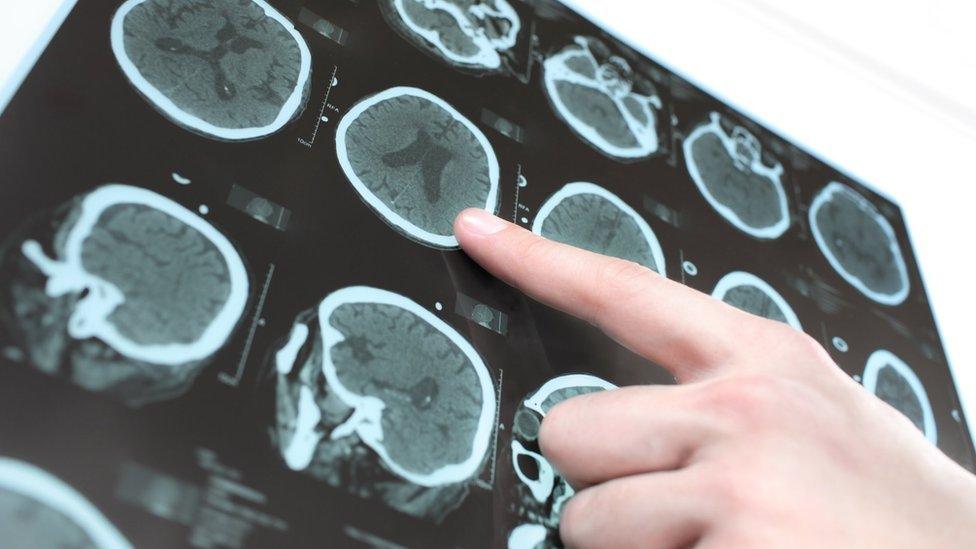Genetic defect link to early onset Parkinson's disease
- Published

There is currently no cure for the degenerative brain condition
A genetic defect could explain why some people develop early onset Parkinson's disease, according to researchers.
Scientists at Dundee University have studied two genes, called Pink and Parkin, that communicate to protect the brain from damage.
They also worked with international colleagues to find patients with a rare mutation affecting these genes.
The team hope their work will lead to the development of improved treatments for patients.
There is currently no cure for Parkinson's, a degenerative condition caused by loss of brain cells.
Team leader Prof Miratul Muqit told BBC Radio Scotland's Good Morning Scotland programme: "We genetically engineered mice and showed that these two genes are critically involved in protecting the brain against cellular stress.
"We've also managed to identify patients, with colleagues across Europe and the USA, who have very rare genetic changes that in effect mimic what we did in the mice.
"These are humans walking on the planet who have only lost that little switch mechanism, and we've shown that these individuals can get Parkinson's by that mechanism."
Prof Muqit said that as well as helping with diagnosis, the discovery could assist drug development.
He said: "We've shown that this is a pathway that is absolutely critical in Parkinson's.
"There are many companies across the world who are trying to develop drugs that can switch on these two genes.
"What our research really provides is absolute confidence that this is the right strategy towards treatments."